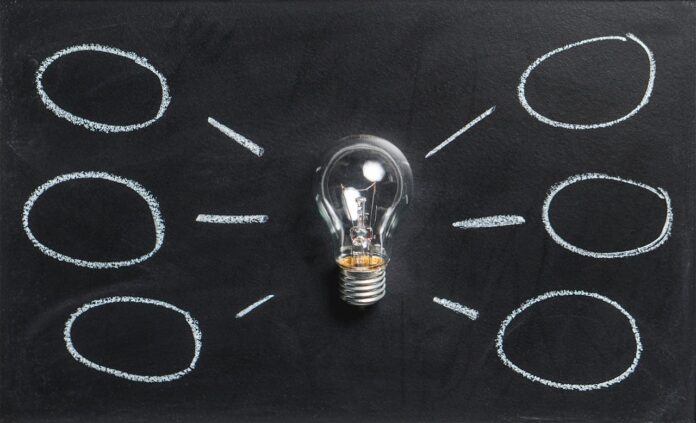Energy conservation is not just a choice but a necessity, and smart devices are revolutionising how households and businesses manage their energy use. These innovative technologies are not only enhancing convenience but also significantly contributing to the reduction of energy consumption. By integrating smart devices into daily life, you can play a crucial role in fostering a sustainable future.
Understanding Smart Devices
Smart devices encompass a range of technologies equipped with sensors, software, and connectivity, enabling them to collect and exchange data. From smart thermostats and lighting systems to appliances and metres, these devices offer real-time insights and control over energy usage.
The essence of their effectiveness lies in their ability to learn and adapt to user behaviours and preferences, thereby optimising energy consumption. As a result, users get to enjoy a completely tailored and optimised experience.
Smart Thermostats: Precision in Climate Control
One of the most impactful smart devices in reducing energy consumption is the smart thermostat. Unlike their modern counterparts, traditional thermostats often lead to energy wastage due to manual settings that don’t account for variations in daily schedules or weather changes.
Smart thermostats, however, can learn a household’s routine and adjust heating and cooling systems accordingly. By fine-tuning climate control, these devices ensure that energy is used efficiently, providing comfort without unnecessary expenditure.
Smart Lighting: Illumination with Intelligence
Lighting constitutes a significant portion of household energy use. Smart lighting systems, which include smart bulbs and lighting controls, are designed to minimise energy wastage.
These systems can be programmed to turn off lights in unoccupied rooms, adjust brightness based on natural light availability, and even respond to voice commands. The integration of motion sensors ensures that lights are only used when needed, thereby reducing overall energy consumption.
Smart lighting can also be reliant on solar energy. As a result, homeowners can install durable solar string lights that don’t require any external power source, further enhancing energy efficiency. These solar-powered lights charge during the day and illuminate outdoor spaces at night, providing an eco-friendly lighting solution that reduces reliance on the grid.

Smart Metres: Insightful Energy Management
Smart metres are instrumental in transforming how consumers understand and manage their energy use. Unlike traditional metres, which provide limited data, smart metres offer detailed information on energy consumption patterns.
This real-time data enables users to identify high-usage periods and adjust their habits accordingly. Energy providers also benefit from this technology, as it allows for better demand management and the implementation of dynamic pricing models that encourage off-peak usage.
Smart Power Strips: Smart Management of Standby Power
Smart power strips are an innovative solution to a common problem: phantom or standby power consumption. Traditional power strips allow devices to draw power even when they are turned off but still plugged in, leading to unnecessary energy wastage. Smart power strips can detect when devices are in standby mode and automatically cut off power to those outlets.
These smart power strips can be programmed to turn off devices during specific times, ensuring that energy is only used when needed. This intelligent management of power usage helps to eliminate waste and reduce overall energy consumption.
Smart Water Heaters: Efficient Heating Solutions
Water heating is one of the largest contributors to household energy bills. Smart water heaters address this by optimising heating schedules and temperature settings based on usage patterns. These devices will heat hot water only when needed, and more importantly, they will only heat the necessary amount, reducing energy use.
Many smart water heaters also come with remote control capabilities, allowing users to adjust settings via smartphone apps. By ensuring that water is heated efficiently and only when needed, smart water heaters help to significantly lower energy consumption and costs.
Smart Window Shades: Harnessing Natural Light and Heat
Smart window shades are a sophisticated addition to home energy management systems. These devices can be programmed to open and close based on the time of day, weather conditions, and indoor temperature.
By automatically adjusting to maximise natural light and heat during winter and minimise solar gain during summer, smart window shades help regulate indoor temperatures more efficiently. This reduces the reliance on heating and cooling systems, leading to substantial energy savings.
Smart Refrigerators: Optimised Food Storage
Smart refrigerators are equipped with advanced sensors and connectivity features that optimise their operation for energy efficiency. These appliances can monitor internal temperatures, humidity levels, and even the freshness of stored food.
Capable of maintaining optimal conditions and alerting users to potential issues, smart refrigerators minimise energy waste associated with frequent temperature fluctuations and excessive cooling. Some models also come with features like door alarms and energy-saving modes that further enhance their efficiency.
As a result, smart refrigerators not only help reduce energy consumption but also extend the shelf life of food. This, of course, contributes to the overall household savings.
Smart HVAC Systems: Comprehensive Climate Management
Smart HVAC systems offer comprehensive climate management by integrating various components such as thermostats, vents, and sensors into a cohesive, intelligent system. These systems can adjust heating, cooling, and airflow based on real-time data and user preferences, ensuring optimal comfort with minimal energy use.
Smart HVAC systems can detect when rooms are unoccupied and adjust settings accordingly, as well as learn user habits to preemptively manage indoor climates. By maintaining efficient operation and preventing energy waste, smart HVAC systems significantly reduce the energy footprint of homes and commercial buildings.
Environmental and Economic Benefits
The widespread adoption of smart devices has profound environmental and economic implications. By reducing energy consumption, these devices help decrease greenhouse gas emissions, mitigating the impact of climate change.
Economically, consumers benefit from lower energy bills, and the reduced demand on the power grid can lead to more stable and affordable energy prices. In the long term, the integration of smart technology in energy management supports the transition to a more sustainable and resilient energy infrastructure.
The Role of Automation and AI
The integration of automation and artificial intelligence in smart devices further amplifies their energy-saving potential. AI algorithms analyse data from various smart devices to identify inefficiencies and suggest optimisations.
Automated systems can then implement these changes without human intervention, ensuring continuous energy-saving measures. For instance, an AI-powered home energy management system can balance the use of different devices, reducing overall energy consumption while maintaining user comfort.
Conclusion
Smart devices are at the forefront of the movement towards more efficient energy use. Their ability to provide detailed insights, adapt to user behaviours, and operate autonomously makes them invaluable tools in the quest for energy conservation. As technology continues to evolve, the potential for smart devices to further reduce energy consumption will only grow, making them an essential component of a sustainable future for all.

